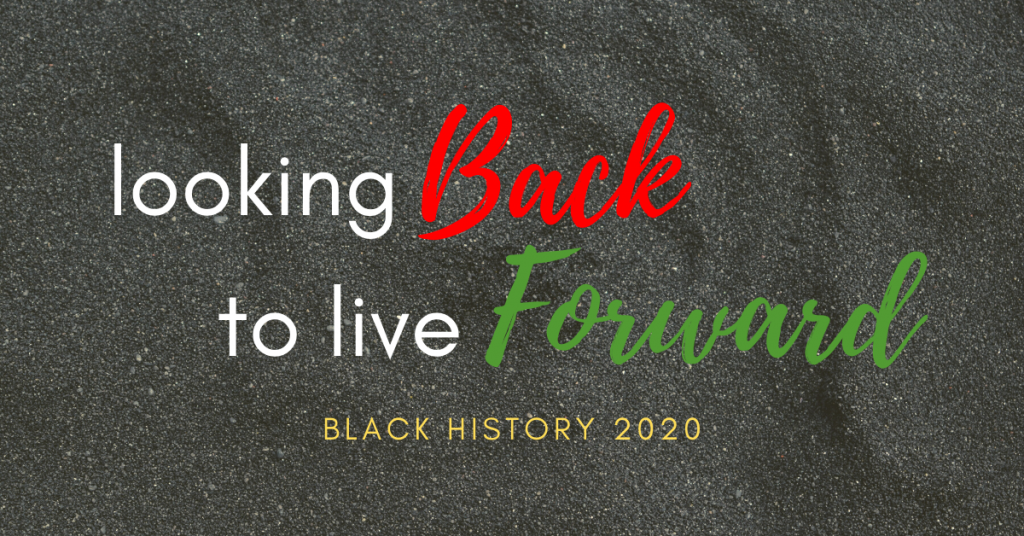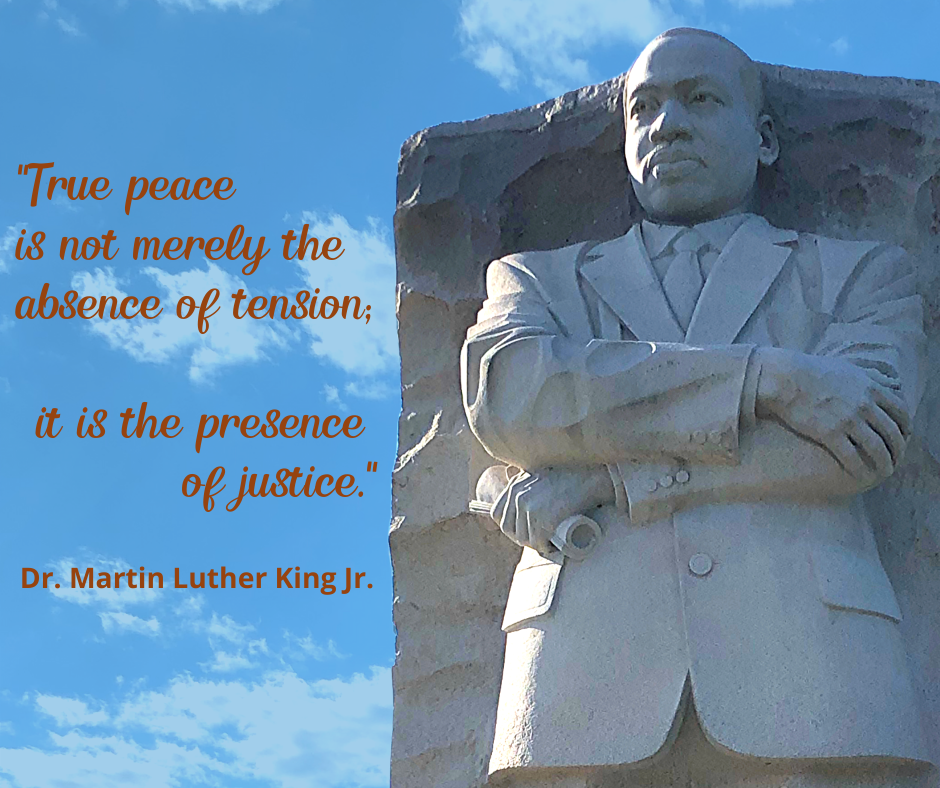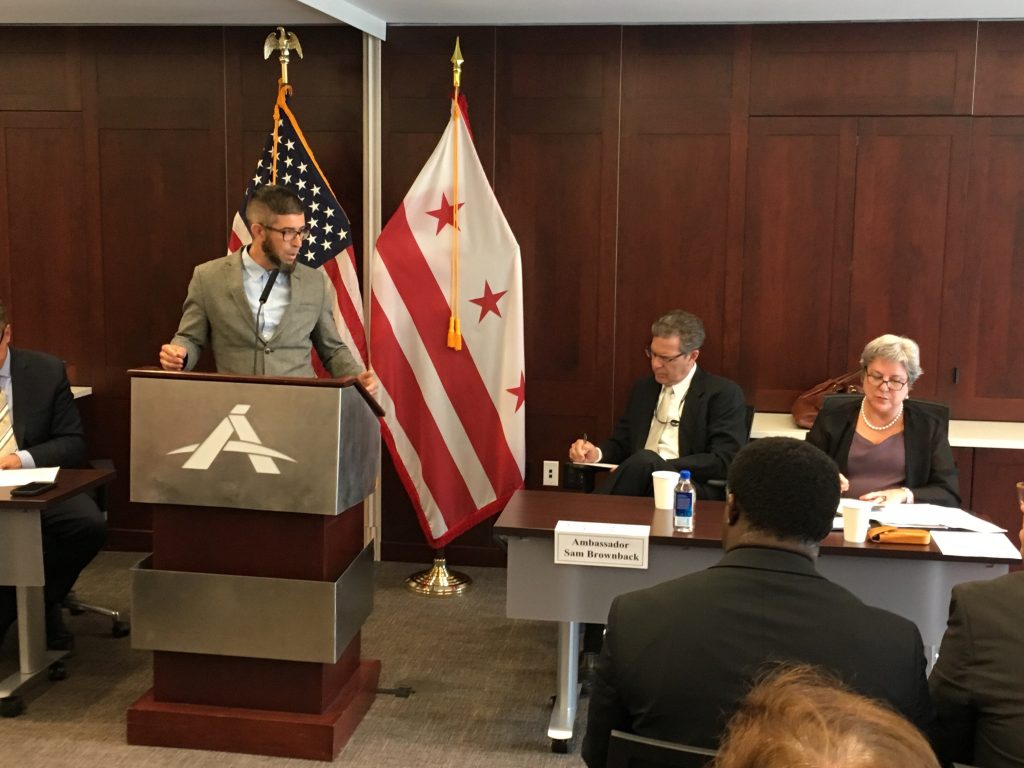
This is the first reading in the joint program “Black History 2020: Looking Back to Live Forward” led by Rev. LaDonna Nkosi, the new Director of Intercultural Ministries and Alexandra Toms, Racial Justice Associate in the Office of Peacebuilding and Policy. We will be offering various blogs, videos, and articles throughout the month of February exploring the intersections of faith, Black history, and current day racism. We hope you join us this month to read, listen, and reflect as we look back through history, so we can better live into Christ.
Written by Alexandra Toms; Racial Justice Associate in OPP
Why do I need to talk about racism?
Why as a Christian should I be concerned about racism? I myself am not racist. I am raising my children not to be racist. I even have friends who are not white. So what more do you want me to do?
Why do I need to talk about racism?
There are laws on the books that prevent further racism. Brown vs the Board of Education ensures integrated schools. The Civil Rights Act protects against discrimination in public and in jobs. We have even gone as far as Affirmative Action to help right some of these wrongs.
Why do I need to talk about racism?
It’s been over 150 years since slavery ended and over 50 years since the Civil Rights Movement. Individuals may have been slower to change, but they are growing older. The younger generations do not even see the color of your skin. Discrimination is now part of the past.
Why do I need to talk about racism?
Even though 50 years have passed, for some it seems like just yesterday. A grandmother drops her grandkids at school, reflecting on the taunts and jeers experienced when she first went to a white school. She remembers drinking from the “colored” water fountain and being denied a seat at the lunch counter. The freedom riders assaulted; buses burned integrating rest stops. The memories and pain, not as absent as she had once hoped.
And now that the grandmother takes her grandkids to school in a time known for integration, she looks around hoping that her grandkids future is different. But her grandkids’ school is predominantly black. Her grandkids being raised in Harlem, not more than a block away from where she raised the kids’ mother.
Despite the integration that her parent’s generation work for, this grandmother sees her grandkids in such a similar situation. The schools are barely integrated, with only a few white children. Teachers are understaffed, the system underfunded. The students’ textbooks haven’t been replaced since early 2000. The history books not even reflecting the nation’s Black President.
Grandma watches her grandkids and hopes they can break the cycle of poverty and despair, go to trade school or college, get an education, and a job that is stable. Because they could be the first to buy a home for themselves, be able to take out a mortgage, denied to her, unaffordable for her children.
Maybe they will leave Harlem, move into the suburbs. They can raise a family, their kids at a school with new textbooks and iPads. But for now she just prays they get through middle school, not having to worry about these things that race through her mind in the school yard. She hopes that despite the educational system, they will be happy young kids, ready to conquer the world. She knows they’ll need that spunk and grit, for the uphill battle they don’t know they’ll have to climb.
So why do I need to talk about racism?
Because the struggle the grandmother and her grandkids work through, are ones that have developed from a long line of discrimination. Patterns of behavior from slavery and segregation, have paved the way for this young family’s current situation. A lack of training and opportunity, and a lack of family wealth have all been created by the past oppression denying civil rights.
So maybe I’m not racist, and I am teaching my kids not to see color, but am I actually doing the right thing, or should I do more to be anti-racist. What’s mine to do about structures creating oppression? Where can I speak out and up for those pushed down despite legislation.
Do I know a family like the grandmother and grandkids, have I shown them grace, or cast judgment on their situation? Can I look beyond the moment, at present decisions, and see what other factors have led to what I have deemed “personal choices?”
This is why we talk about racism, so we can see the grandmother and her grandkids as fellow children created in the Lord’s image. If we are to love the Lord’s children, love our neighbors as ourselves, we can’t be okay with the oppression they have experienced, the discrimination they have felt.
But we have to be able to see it, to recognize there is still discrimination, or else we blindly believe the grandmother’s situation is based solely on poor decisions. And this blind belief leads back to the original thinking that racism is over, solved by laws, legislation and colorblind thinking. If that is our thought, we miss an entire network of oppression, keeping God’s children below us, participating in the discrimination.
Reflection Questions and Scripture
- When you think of racism, what thoughts and emotions are brought up for you?
- As we start this journey learning and relearning about Black history in the U.S., what do you hope to gain?
- Do you have any fears or concerns as we enter into this month? Are there reasons you may be feeling tentative?
Read Psalm 139:14 and Ephesians 2:10
In Psalm 139:14, David writes that “we are fearfully and wonderfully made.” Ephesians 2:10 says that we are “God’s masterpiece.” If a close friend of yours loaned you a piece of artwork that they had created, their masterpiece, how would you care for that piece of art? If you had to travel with the artwork to get it to point A to point B you would most likely handle it with an immense amount of care. You would probably take extra precaution getting it in and out of the car. You may even drive a little slower if it is something delicate. I worked at alongside a wedding coordinator for several years, and the most anxiety provoking part of the entire job was dealing with the wedding cake. Usually, we would just add some decorations to the table, and add some flowers to the cake, and even that little amount was done in very slow, deliberate movements. The worst time was when the cake arrived the day before, and we were in charge of taking it from the walk-in cooler and setting it on the cake table. I do not think I ever pushed that cart so slow or had my heart racing so fast at a wedding. This was someone’s masterpiece, and not just the person who made it, but also the couple who it was made for. It was their masterpiece.
- We are God’s masterpieces; each of us, made by God, in the Lord’s image. What if we treated each other with as much respect, care, and sensitivity as the cake? How would the world be different?
- If something would have happened to the wedding cake, not only would I have been horrified that a masterpiece was damaged, but I would have been embarrassed, ashamed, and sorrowful for the couple who commissioned the cake. When we hurt other people, fellow masterpieces, do we feel ashamed, embarrassed, and sorrowful in response to God?
- How is racism causing harm to God’s masterpieces?



